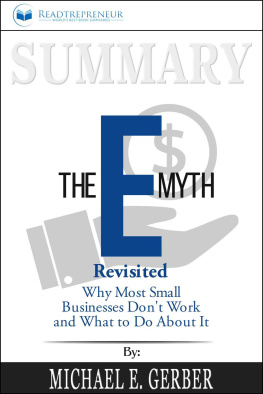It has been more than ten years since my first book, The E-Myth: Why Most Small Businesses Dont Work and What to Do About It , was published. In that book, I described what I had learned over the ten previous years in our small business consulting firm, then the Michael Thomas Corporation, now The E-Myth Academy, about why small businesses fail to fulfill their potential. Why? The presumptionthe entrepreneurial mythis that most businesses are started by Entrepreneurs; the truth is that most businesses are started by Technicians suffering from an entrepreneurial seizurethe pie maker goes into the pie business; the mechanic opens an automotive repair business; the physician starts a medical practice. The Technician makes the fatal assumption that because he knows how to do the technical work of the business, he knows how to build a business that works. Unfortunately for him and for the business he creates, the opposite is true; and so most businesses fail, or if they dont fail outright, they fail to realize their potential.
More than two decades later, the lessons I have learned from our work with more than fifteen thousand small, medium-sized, and largevery, very largeorganizations, provide me with an even deeper understanding of not only why most small businesses dont work but why most organizations, no matter how large or small, no matter what their industry, be they high tech, low tech, or no tech, be they outwardly successful or on a precipitous decline, are doomed to exist in a primarily dysfunctional condition.
I have also discovered that in trying to change their condition in the best ways they know how, most organizations are simply bound to recreate an equally dysfunctional system, despite their well-meaning commitment to do the very opposite.
How is this possible? How can so many highly skilled and motivated people produce so many disastrous results? It is my belief that most organizations lack the tools, the knowledge, and most important, the understanding they need in order to transform themselves. It is also my belief that the tools, knowledge, and especially the understanding they need are not available to them through the management rhetoric, programs, and processes that are forever being pitched and sold to them. And the reason they are not is because these new messages about management are built upon the same old expectations and the same old definition of what management is and isnt. And theyre wrong.
What is needed, therefore, is a revolution in the idea of management: what it is, what it can be expected to do, and most certainly what it isnt. This book was written in the hope that I could share with you what my people and I have learned over the past two decades: how to provide the necessary insight into why most organizations dont work, and what to do about it. This information can be implemented by any organization, large or small.
Enter the idea of the E-Myth Manager.
The E-Myth Manager is an alternative to management as it is currently practiced.
The E-Myth Manager exercises full accountability and authority for the decisions he or she makes: he rigorously engages and teaches the people within his department or company (well call it an organization) to grow beyond their limitations; he expects all participants within his area of influence to participate fully in the development of the operating system of his organization, to contribute continuously to the innovation required to move the organization into a world-class state, to aid the organization in performing always at the top of its class.
And the E-Myth Manager accomplishes all of these worthy objectives by operating his organization as if it were a business on its own, in the most entrepreneurial manner possible, outside the body politic of the larger firm, yet simultaneously serving the larger firm and its strategic initiatives by identifying the role his group must play to fulfill them, and playing out that role with conviction.
Therein lies the key to the E-Myth Managers heart: conviction. Conviction that his life has meaning. Conviction that the people he is accountable for are fully engaged in whatever it is they are there to do. Conviction that the work they do together has meaningnot just that it is justifiable, but that it is important, and that everyone within the organization understands and agrees with that goal and is personally committed to it. Conviction that when a decision is made it is deemed a commitment, that once a commitment is made they will move mountains to keep it.
And the underpinning of that mind-set which the E-Myth Manager embodies, and that no Manager reading this book would argue with, is his commitment to thinking small. To thinking of his organization as a small business.
Therein we discover the success of the E-Myth Manager. The E-Myth Manager is one who understands the profound difference between creating a business that works and getting a person to worklet alone being the person who works.
The E-Myth Manager is one who understands how critical it is to adopt an entrepreneurial mind-set, not only for the development of the business for which she is accountable, but for the lives of the people with whom she works.
The E-Myth Manager is also one who understands the profound difference one can make in any organization through the development and use of a management system , as opposed to the highly personal and subjective methods she is accustomed to using to get results.
Finally, the E-Myth Manager is one who forsakes forever the use of management rhetoric in order to produce a true transformation of everything she is committed to do. First, for the sake of herself. Second, for the sake of the organization of which she is determined to become an indelible part. And ultimately, for the sake of the people she comes into contact with on a day-to-day basis.
The order in which the E-Myth Managers attention is placed bears repetition because that focus is critical to the challenge the E-Myth Manager faces in his attempt to transform the world around him.
For an E-Myth Manager, the focus is:
First, me.
Second, the organization of which I am a part.
Third, the people around me.
This focus is critical. For the law upon which it is based says that people are not selfless. Exactly the opposite is true. And if that is true, then how effective can any Manager be who has ignored his own human nature? The question each and every Manager must ask, and then answer, in order to begin the process the E-Myth Manager is committed tothat of true transformationis not, What does my company want? Is not, What do my people want? But is, first and always foremost, What do I want? Truthfully. Honestly. Openly. Directly.
It is my hard-won belief that without asking that questionand then answering itno one can be successful at managing anything. Because no one who has failed to ask, and then answer, that question will ever be able to manage himself.
The essence of the philosophy behind the E-Myth Manager is that if life is not being served in an organization by the Managers within it, then that organization isnt fit to work in.
The other component of being an E-Myth Manager is making choices. The choice of where I will work, and where I wont. The choice of what is of value, and what isnt. The choice of asking the questions, What does it mean to be an active human being? and, How do I engage in being that person?


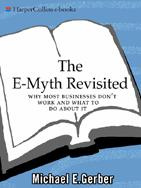
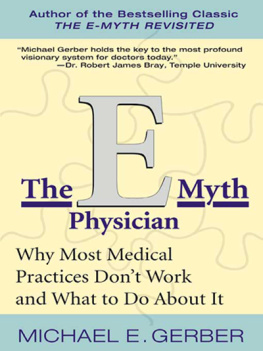
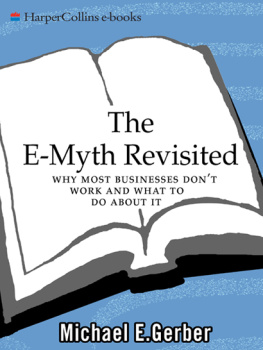
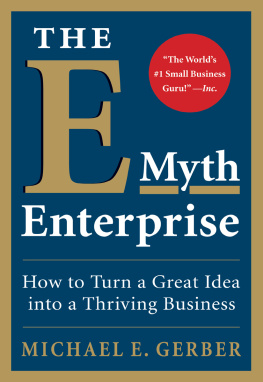
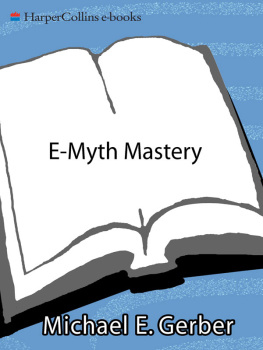
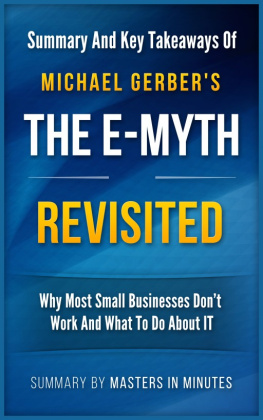
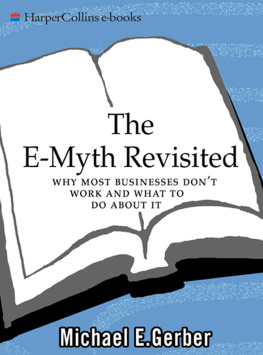

![Gerber - E-myth mastery: [the seven essential disciplines for building a world class company]](/uploads/posts/book/164986/thumbs/gerber-e-myth-mastery-the-seven-essential.jpg)
